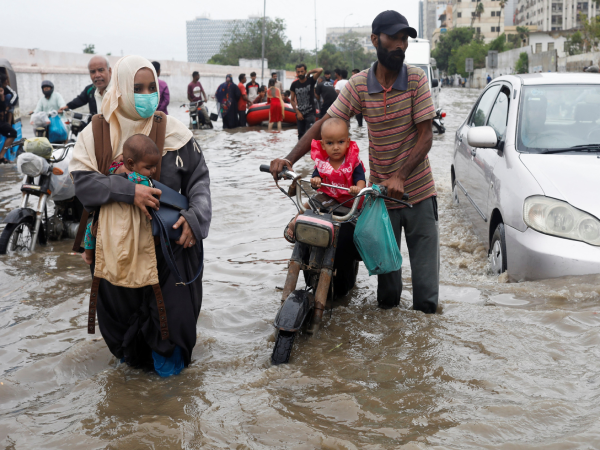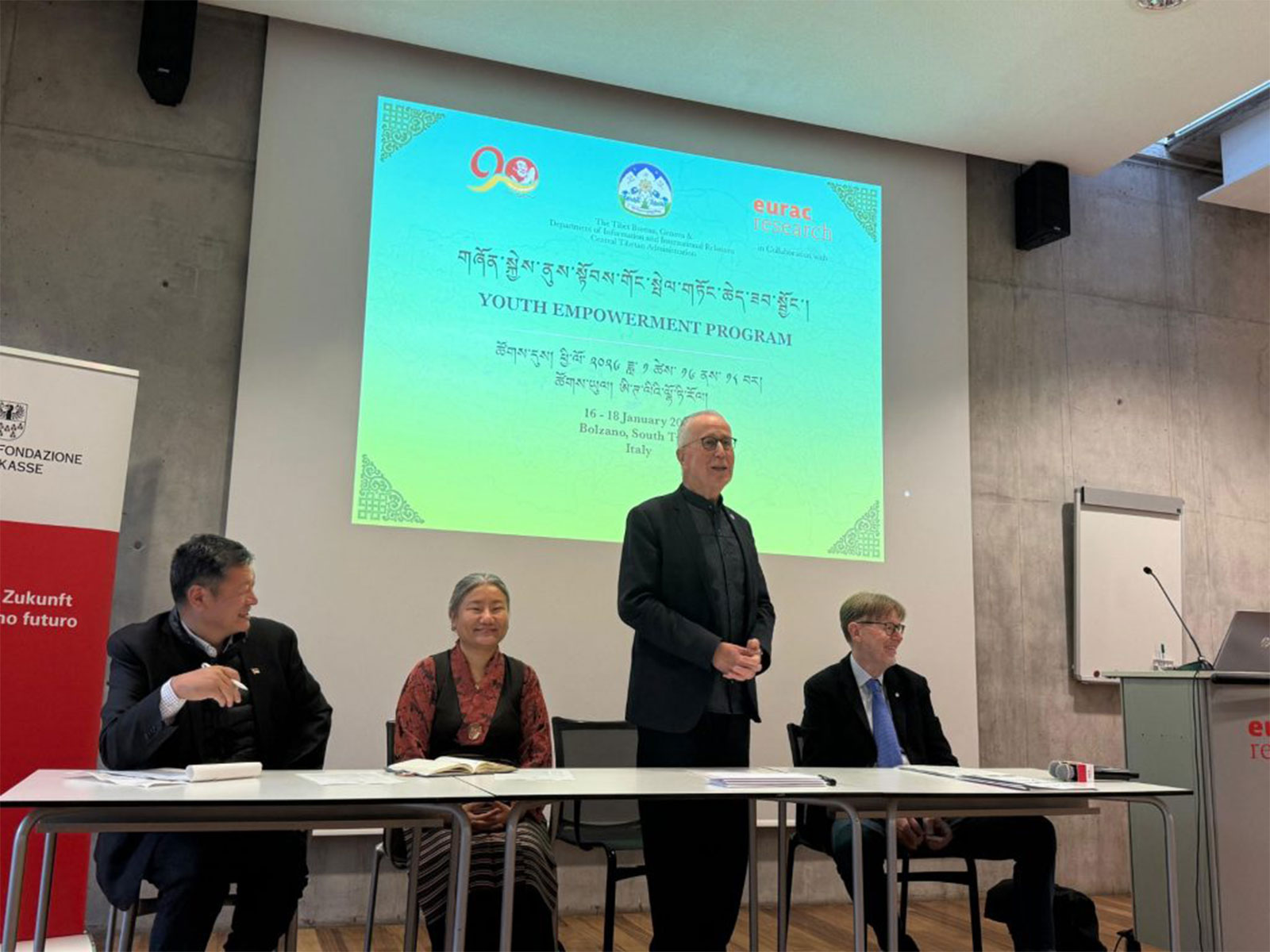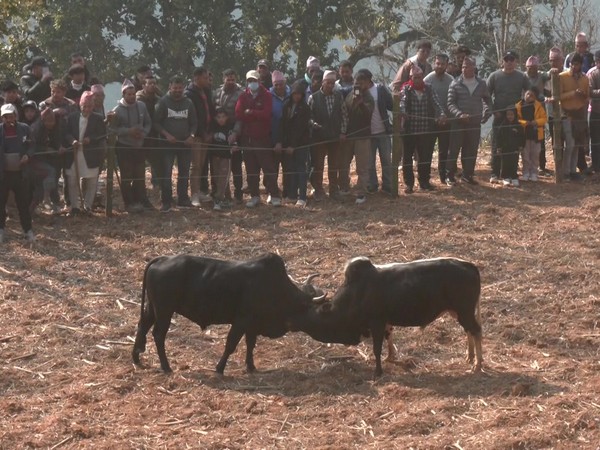
Pakistan: Torrential rains to lash Sindh, Punjab, flood threat looms
Sep 05, 2025
Karachi [Pakistan], September 5 : The Pakistan Meteorological Department (PMD) has forecast torrential rains in several districts of Sindh and eastern Punjab between September 7 and 9, with chances of urban flooding in low-lying areas, Dawn reported.
According to the Met Office, a low-pressure system currently lies over the Indian state of Madhya Pradesh and is likely to shift towards the west and northwest. The system is expected to reach Rajasthan and adjoining areas of Sindh on September 6.
Due to this development, strong monsoon currents are expected to enter Sindh and eastern Punjab starting September 6, the weather department said.
"Under the influence of these meteorological conditions, widespread rain and windstorms/thundershowers, coupled with scattered heavy to very heavy falls, are expected to hit Tharparkar, Islamkot, Nagarparkar, Chachro, Dhali, Diplo, Kaloi, Umerkot, Mirpurkhas, Sanghar, Khairpur, Shaheed Benazirabad, Matiari, Tando Allayar, Tando Mohammad Khan, Hyderabad, Karachi, Thatta, Badin, Sajawal, Jamshoro, Dadu, Kashmore, Sukkur, Larkana, Jacobabad, Shikarpur and Ghotki from Sept 6 (evening/night) to Sept 9 with occasional gaps," the PMD said, as quoted by Dawn.
The Met Office has further warned that torrential rains may trigger urban flooding in low-lying areas of Mirpurkhas, Shaheed Benazirabad, Tharparkar, Khairpur, Sukkur, Larkana, Thatta, Badin, Sajawal, Hyderabad and Karachi from September 7 to 9.
Heavy rains during the monsoon season have repeatedly brought life to a standstill in Karachi and other parts of Sindh in recent years, disrupting transport and causing significant damage to infrastructure. Authorities have been advised to remain on alert in view of the upcoming weather conditions, Dawn reported.
Meanwhile, international agencies have stepped up support to Pakistan ahead of the predicted floods. The United Kingdom and the United Nations have announced additional humanitarian assistance as severe flooding devastates the northern region and Punjab, with Sindh facing impending threats, Dawn reported.
On Thursday, the UK announced an additional £1.2 million to support the government's coordinated response and help communities in Sindh prepare for floods. According to a press release from the British High Commission, this brings the UK's total humanitarian assistance to £2.53 million, providing life-saving support to more than 400,000 people.
The funds will be channelled through non-governmental organisations in Sindh to strengthen early warning systems, enable community evacuations, pre-position essential supplies, and protect livestock. "Sindh is in a critical window to prepare and reduce the impact of the upcoming floods," British High Commissioner Jane Marriott said. "For every dollar spent on prevention, up to seven dollars are saved in response. More importantly, lives are saved, and destruction is avoided," Dawn reported.
The new aid package follows GBP 1.33 million announced on August 22 for early response and relief operations in Khyber-Pakhtunkhwa, Punjab and Gilgit-Baltistan. That support includes food rations, search and rescue operations, mobile medical camps and the restoration of irrigation channels. The UK has also contributed GBP 500,000 to the Start Ready Disaster Risk Financing system in Pakistan, assisting 20,000 people across Punjab, Sindh and KP.
The UN is working closely with Pakistani authorities to assess the humanitarian impact of the floods. Emergency Relief Coordinator Tom Fletcher released USD 600,000 from the Regional Humanitarian Pooled Fund to support relief and recovery operations, the UN Information Centre in Islamabad said. UN Secretary-General Antonio Guterres expressed solidarity with Pakistan and commended the authorities for relocating more than one million people in Punjab, according to a statement issued by spokesperson Stephane Dujarric, Dawn reported.
Meanwhile, Pakistan's Federal Ministry of Health has issued advisories to curb the heightened risk of disease outbreaks following widespread water contamination. The National Institutes of Health (NIH) has warned of rising threats from cholera, typhoid, dengue fever, chikungunya and malaria. The ministry urged citizens to follow protocols outlined in advisories posted on its website and that of the NIH.
Separately, the UN's Food and Agriculture Organisation (FAO) said in its "Desert Locust Bulletin" that Pakistan faces no immediate locust threat. Surveys in August found no locusts in key summer breeding areas, though very small-scale breeding may still occur. "No significant developments are expected," the report noted, as quoted by Dawn.



























